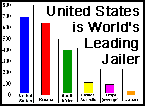|
|
 |
 |
 |
 |
register |
bbs |
search |
rss |
faq |
about
|
 |
 |
meet up |
add to del.icio.us |
digg it
|
 |

|
Vitamin C and Colon Cancer - National Institute of
CancerNet from the National Cancer Institute
******************************************************************************
* CANCER FACTS
*
* National Cancer Institute
*
* National Institutes of Health
*
******************************************************************************
Vitamin C
Published results of clinical trials do not indicate that use of vitamin C is
effective as a treatment for cancer, even as a supplement to conventional
therapy. Researchers at the Mayo Clinic in Rochester, Minnesota, have
evaluated vitamin C in cancer treatment in two important clinical studies
supported by the National Cancer Institute (NCI). In neither study was there
evidence that vitamin C is effective.
In the first study, scientists assessed the usefulness of vitamin C in
relieving the symptoms and extending the lifespan of patients with advanced
cancer who could no longer benefit from standard therapy. Patients given
vitamin C were matched with a control group of similar patients given a
placebo (an inactive "sugar pill" flavored to taste like vitamin C).
Researchers reported that statistically, vitamin C had no more effect than the
placebo. It did not increase survival, nor did it relieve symptoms (such as
pain and poor appetite). Neither vitamin C nor the placebo had side effects
(such as nausea and vomiting). A report of this study was published in the
September 27, 1979, issue of The New England Journal of Medicine.
In the second study, the effectiveness of high-dose vitamin C was evaluated in
patients with cancer of the colon or rectum who had received no previous
chemotherapy or radiation therapy and who had advanced disease with minimal
symptoms. It is important to note that this trial was carefully designed and
conducted to study the greatest possible benefit of vitamin C in treatment.
Patients in this study received vitamin C in the dose suggested by those who
promote this form of treatment. Vitamin C therapy had no advantage over
placebo therapy, and the scientists who conducted the trial concluded that
high-dose vitamin C is not effective against advanced cancer. The results of
this study were reported in the January 17, 1985, issue of The New England
Journal of Medicine.
Continued interest in the possible use of vitamin C in cancer treatment has
prompted NCI to continue its evaluation of the vitamin through its Division of
Cancer Prevention and Control. A national conference to discuss the bio-
logical functions of vitamin C and its relationship to cancer was held in
September 1990 at the National Institutes of Health. Results of research
studies that were discussed at the conference have been published in various
scientific journals. Results of some animal studies described at the confer-
ence suggest that vitamin C improves the antitumor activity of other drugs or
protects against certain adverse effects of some cancer therapies. However,
these results have not been confirmed by other investigators.
Although use of vitamin C has not been demonstrated to be effective as a
cancer treatment, preliminary evidence from experiments with laboratory
animals and from population studies suggests that foods rich in vitamin C
inhibit the initial development of some forms of cancer. However, the
mechanism of protection is unclear. It is also uncertain whether the
protection seen in population studies is the result of vitamin C or some other
component in the diet (such as beta-carotene). Further study is necessary to
determine whether dietary or supplemental vitamin C has a role in cancer
prevention and, if so, to determine the maximum safe dose. The NCI currently
is sponsoring such studies.
# # #
The Cancer Information Service (CIS), a program of the National Cancer
Institute, is a nationwide telephone service for cancer patients and their
families, the public, and health care professionals. CIS information
specialists have extensive training in providing up-to-date and understandable
information about cancer. They can answer questions in English and Spanish
and can send free printed material. In addition, CIS offices serve specific
geographic areas and have information about cancer-related services and
resources in their region. The toll-free number of the CIS is 1-800-4-CANCER
(1-800-422-6237).
Date Last Modified: 10/92
|

|
 |
To the best of our knowledge, the text on this page may be freely reproduced and distributed.
If you have any questions about this, please check out our Copyright Policy.

totse.com certificate signatures
|
 |
 |
About | Advertise | Bad Ideas | Community | Contact Us | Copyright Policy | Drugs | Ego | Erotica
FAQ | Fringe | Link to totse.com | Search | Society | Submissions | Technology
|
 |
 |
 |
 |
|

